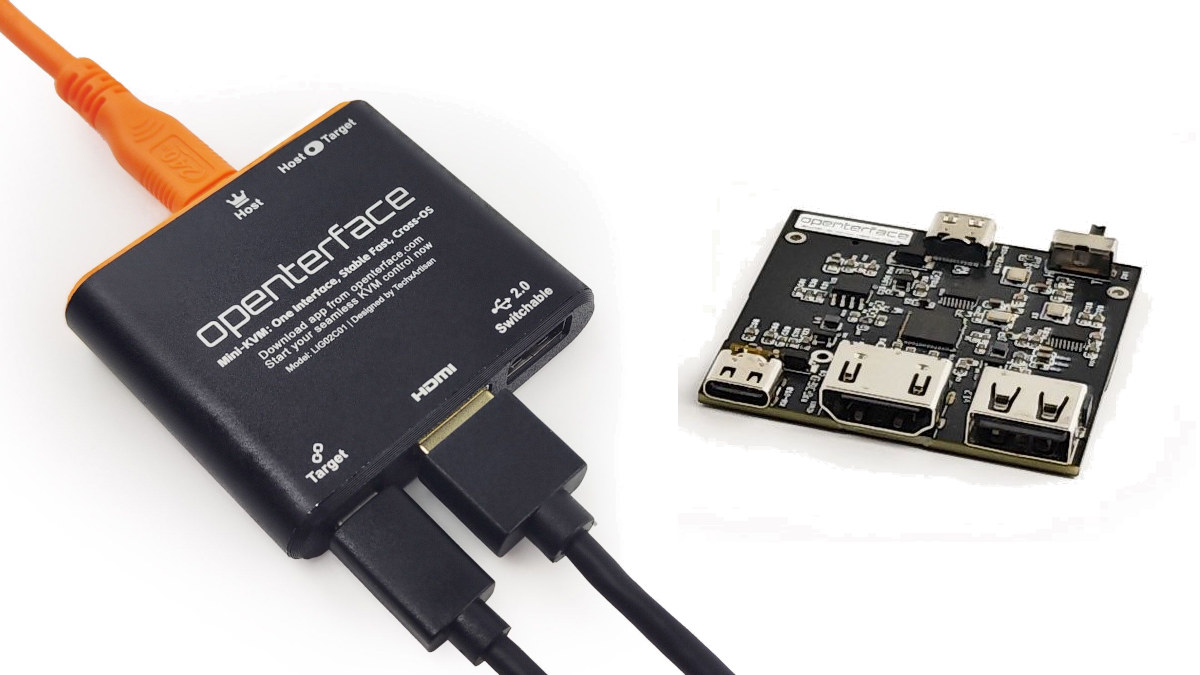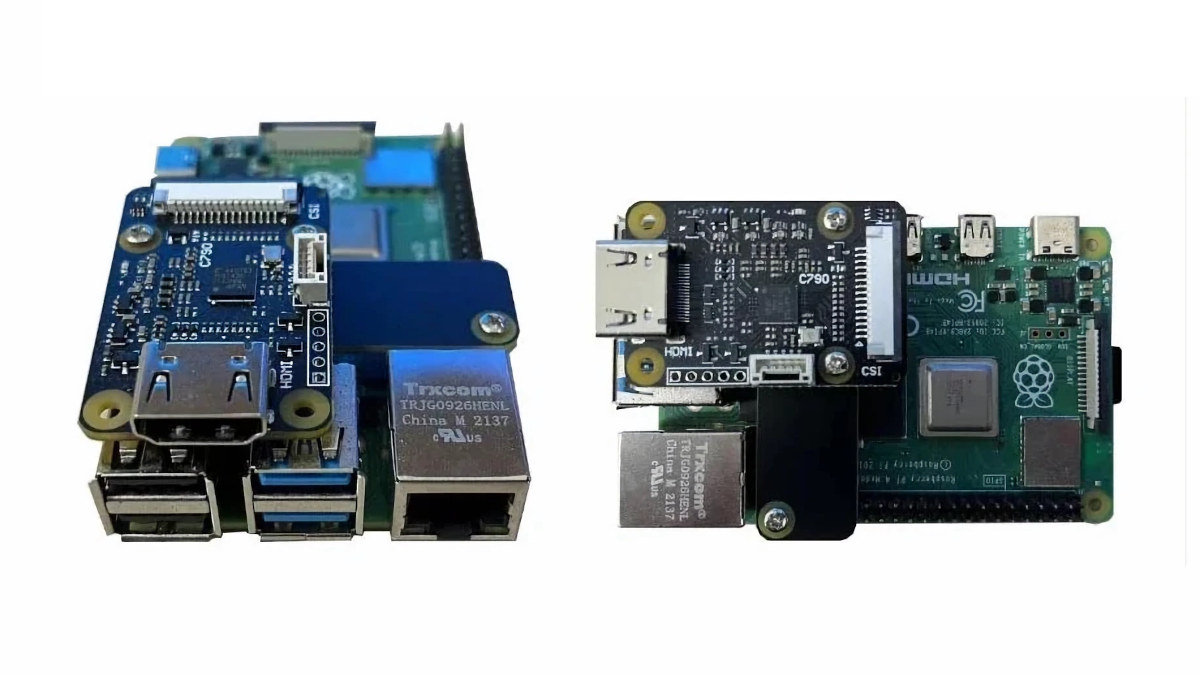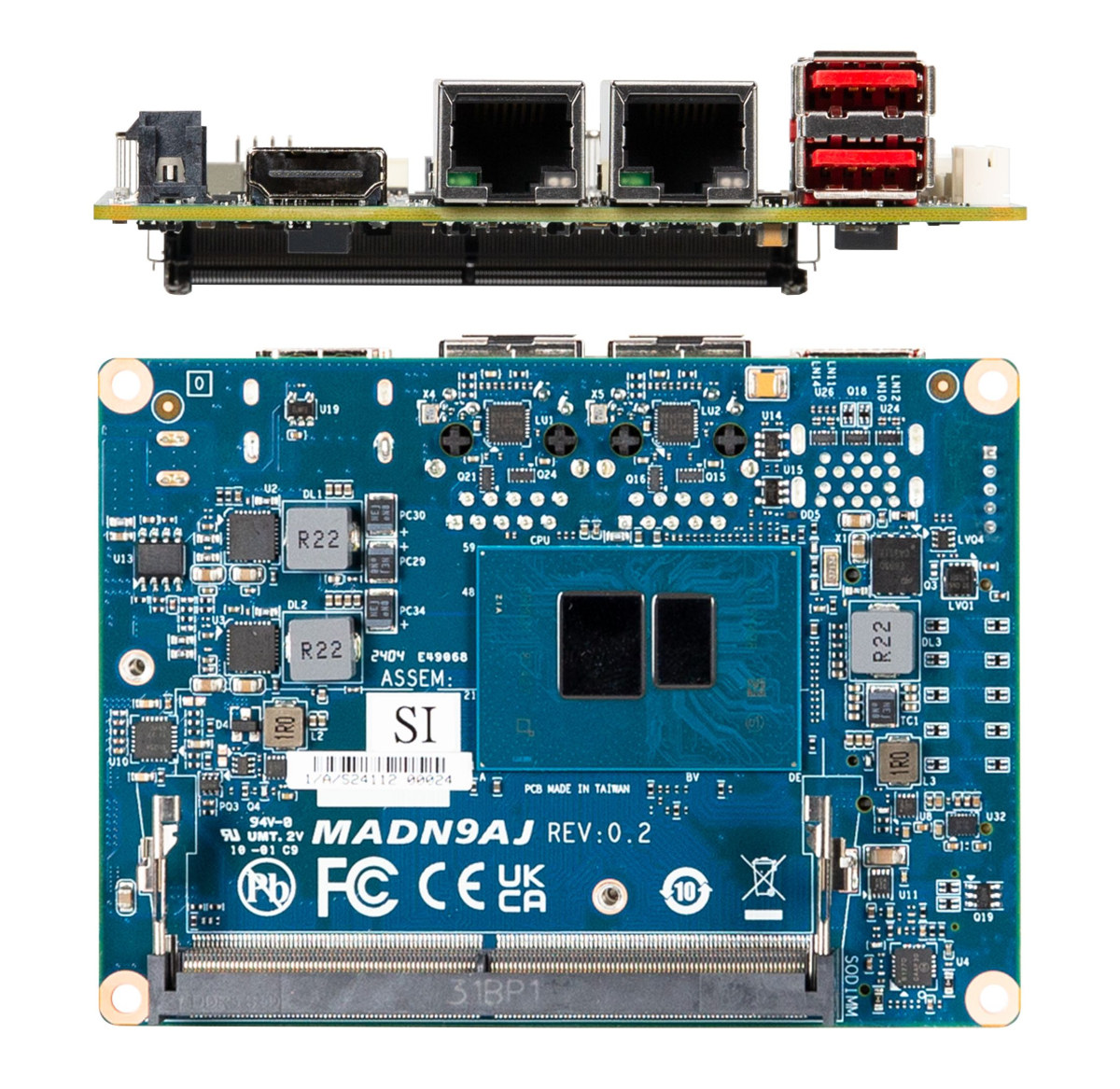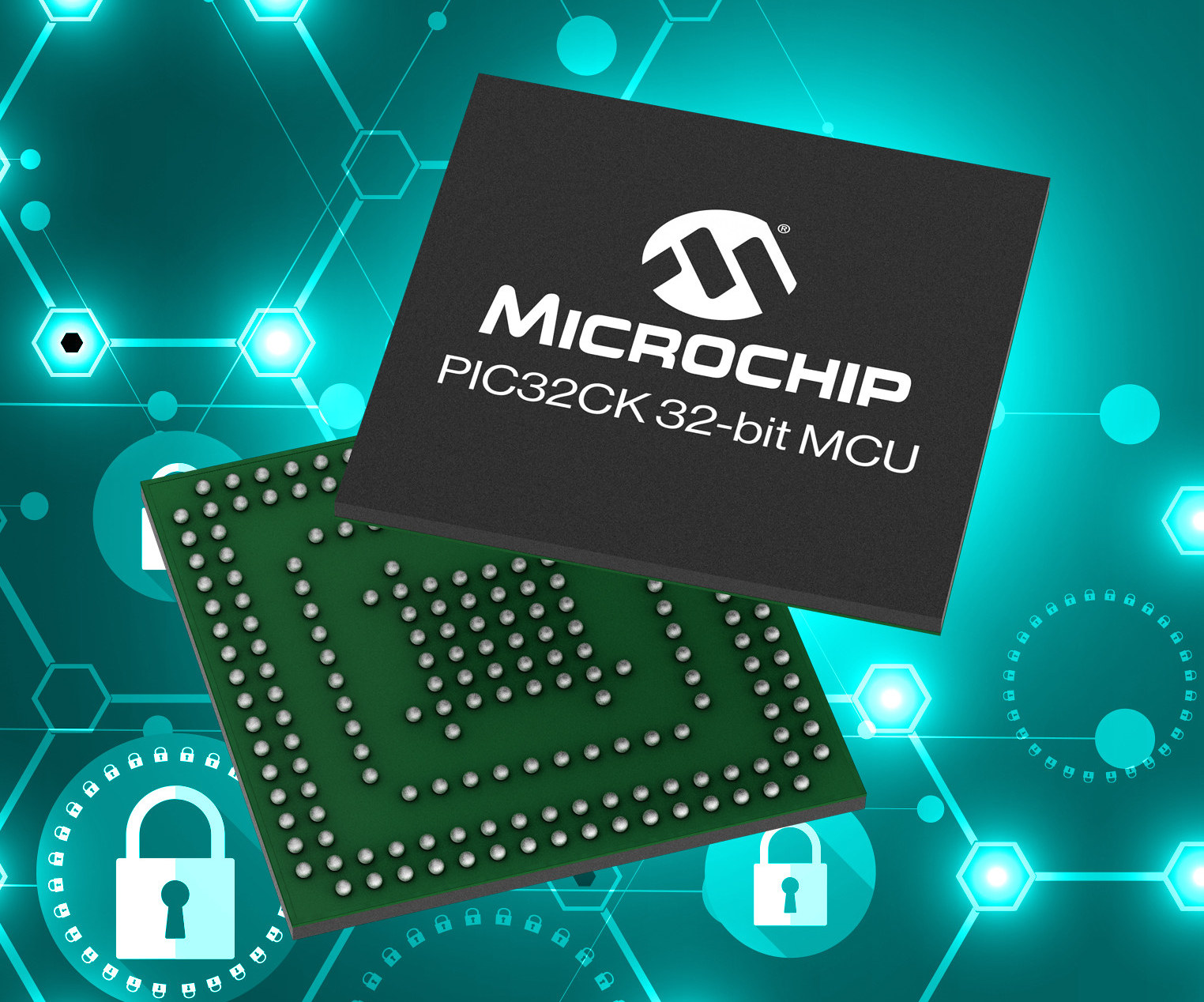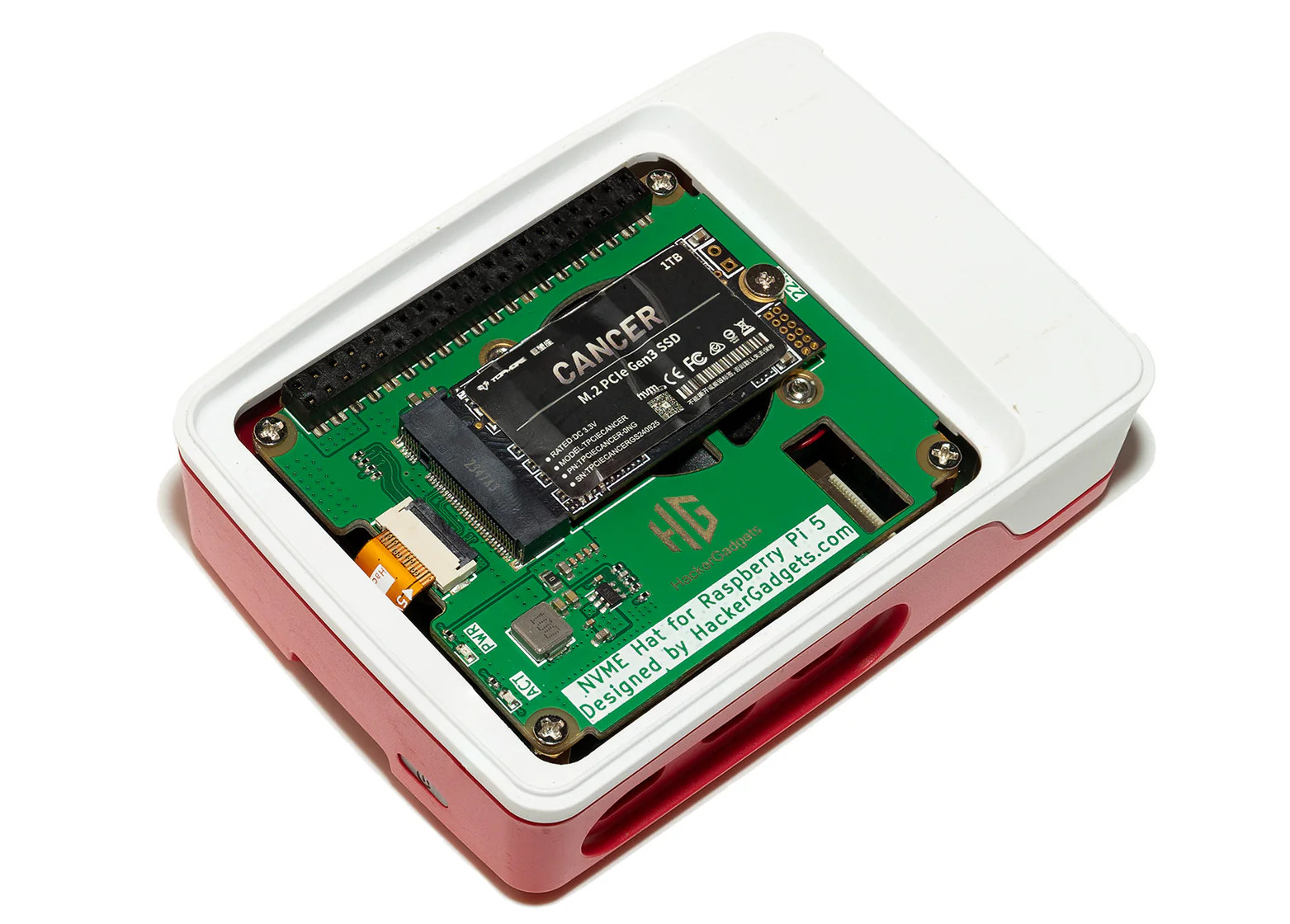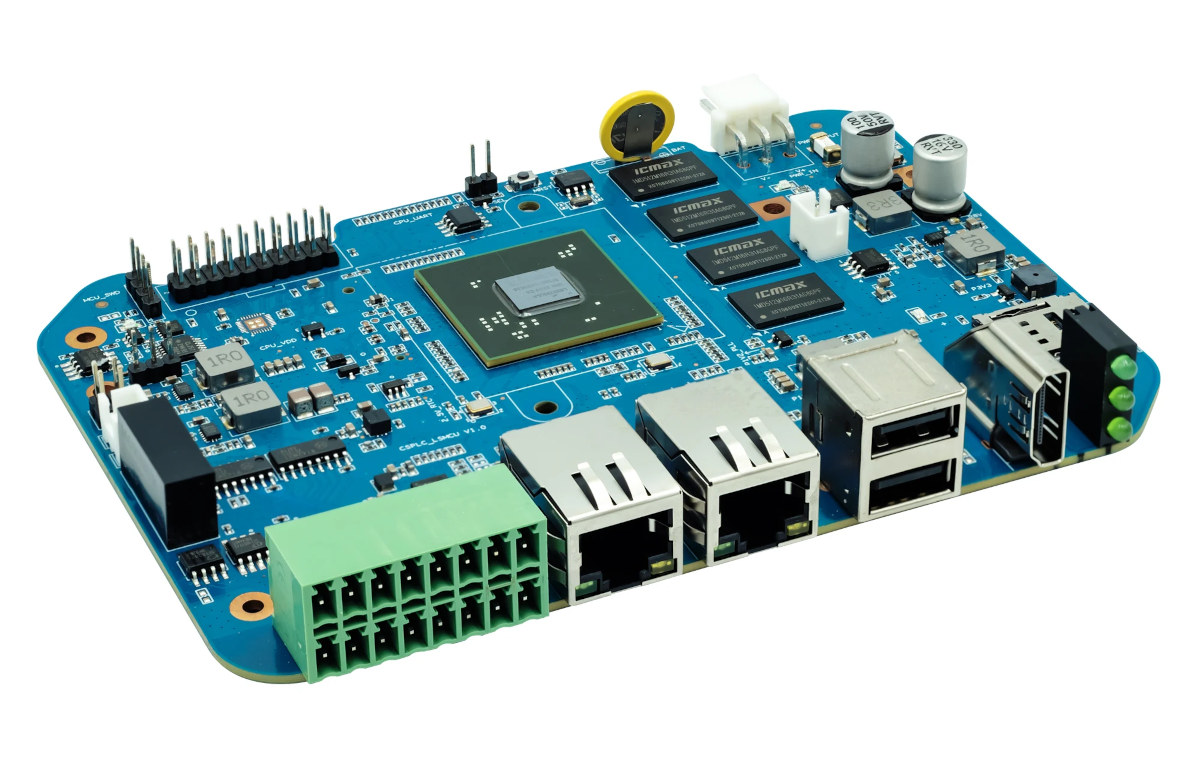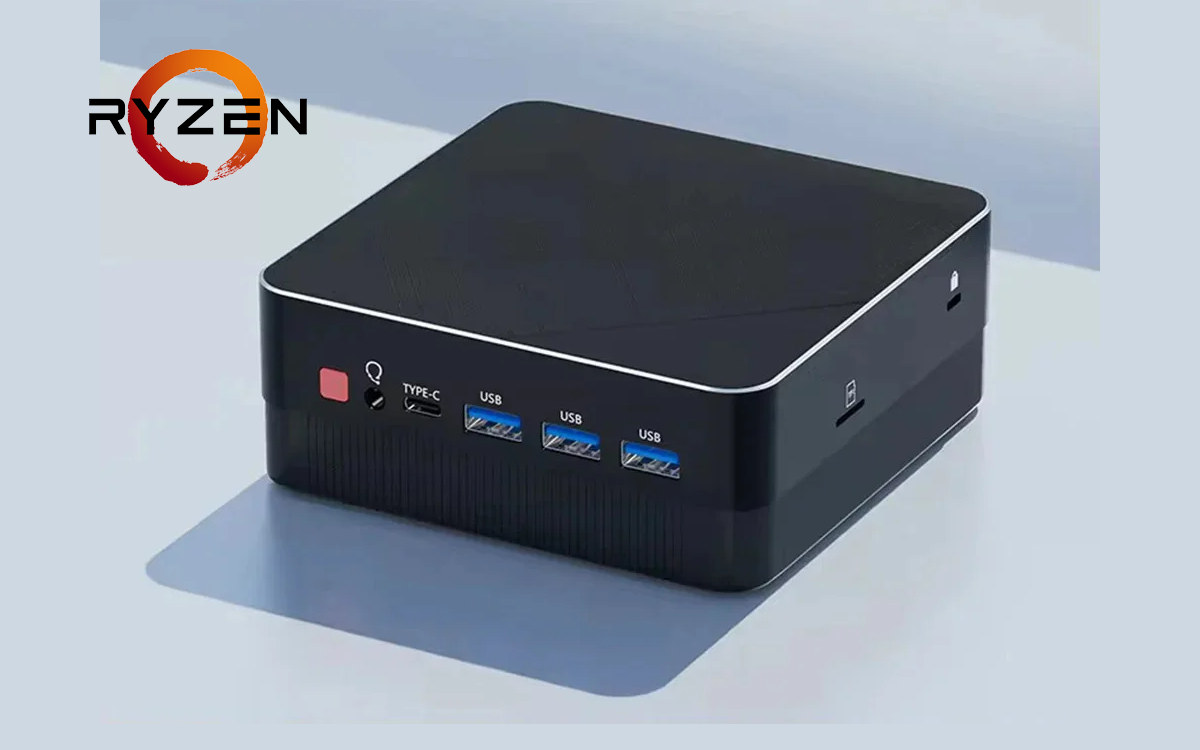Openterface Mini-KVM compact, open-source hardware KVM-over-USB device with HDMI and audio inputs which connects over a USB-C port to the host computer. We’ve seen quite a few low-cost KVM-over-IP solutions based on single board computers over the years, but the Openterface Mini-KVM is quite different (and cheaper) as a plug-and-play and network-independent KVM-over-USB device that establishes a direct HDMI and USB connection between the host computer and the target device. It supports many of the same features as KVM-over-IP solutions except for some features such as ATX support found in the PiKVM v4 Plus or the Pi-Cast KVM with an expansion board that allows the target device to be turned off and from the host device. Mini-KVM (model LIG03D01) specifications: Control method – KVM-over-USB Video capture – Up to 1920×1080 @ 30 Hz with under 140ms latency through HDMI or VGA (the latter requires an add-on VGA-to-HDMI cable) Audio capture […]
Raspberry Pi Connect software makes remote access to Raspberry Pi boards easier
Raspberry Pi Connect software, currently in beta, aims to make remote access to the Raspberry Pi boards even easier and more secure by using a web browser and minimal configuration needed. It’s been possible to access Raspberry Pi boards remotely through VNC forever, and the X protocol used to be an option before the switch to Wayland, but both can be somewhat hard to configure especially when wanting to access the machine on a different local network or from the internet. Raspberry Pi Connect aims to change that. Under the hood, we’re told the web browser and the Raspberry Pi device established a secure peer-to-peer connection with the same WebRTC communication technology found in programs such as Zoom, Google Meet, or Microsoft Teams. The Raspberry Pi runs the “rpi-connect” daemon that listens to screen-sharing requests from the Raspberry Pi Connect website and establishes a secure, low-latency VNC instance directly between […]
$23 C790 HDMI to MIPI CSI adapter adds HDMI and audio input to Raspberry Pi SBCs
C790 is an HDMI to MIPI CSI-2 board compatible with Raspberry Pi single board computers featuring a 40-pin GPIO header that adds both HDMI input up to 1080p60 and I2S audio input to the popular Arm SBC. The solution can be useful for IP KVM solutions as we’ve seen with the PiKVM v3 and PiCast portable KVM switch, or to capture video and audio from a camera that outputs HDMI with audio through the board’s MIPI CSI camera interface and I2S input signals on the GPIO header. C790 specifications: Supported SBC’s – Raspberry Pi Zero, 3B, 3B+, 4B, CM3, CM4 with MIPI CSI-2 input port (Note: Raspberry Pi 4 is limited to 1080p50 due to 2-lane MIPI CSI-2, CM4 supports 1080p60) Main chip – Toshiba TC358743XBG HDMI to CSI-2 bridge chip up to 1920×1080, 60 FPS Video and audio input – HDMI port up to 1080p60 Video Output – 2-lane […]
GIGAIPC PICO-N97A is a Pico-ITX SBC powered by an Intel Processor N97 CPU
GIGAIPC PICO-N97A Pico-ITX SBC features an Intel Processor N97 quad-core Alder Lake-N processor coupled with up to 16GB DDR5 SO-DIMM memory and M.2 SATA or NVMe storage designed for passively cooled and enclosed systems for Industry 4.0 applications in the smart cities, retail, and healthcare sectors. The single board computer supports up to two independent displays via HDMI and LVDS interfaces. It also provides dual Gigabit Ethernet, two USB 3.1 ports, an additional M.2 Key-B socket for wireless, and various headers for RS232/RS422/RS485, GPIO, USB 2.0, and more. GIGAIPC PICO-N97A specifications: SoC – Intel Processor N97 CPU – Alder Lake-N quad-core/quad-thread processor @ up to 3.6 GHz Cache – 6MB cache GPU – 24 EU Intel UHD graphics @ up to 1.20 GHz TDP: 12W System Memory – Up to 16GB DDR5-4800 via a single SO-DIMM socket Storage – SATA or NVMe SSD via M.2 M-Key socket (See expansion) Video […]
Microchip PIC32CK 32-bit Arm Cortex-M33 MCU combines Hardware Security Module with Arm TrustZone for IoT cybersecurity compliance
Microchip PIC32CK is a new family of 32-bit Arm Cortex-M33 microcontrollers clocked up to 120 MHz with Arm Trustzone and an optional integrated Hardware Security Module (HSM) that can help companies meet the cybersecurity requirements for consumer IoT devices and critical infrastructure mandated in the US, Europe, and other countries. Two sub-families are available with the PIC32CK GC and PICK32CK SG with the latter integrating the HSM, and the company claims it is the first 32-bit device on the market that combines an HSM with TrustZone technology for optional security. The PIC32CK is also said to support ISO 26262 functional safety and ISO/SAE 21434 cybersecurity standards. Microchip PIC32CK specifications: MCU core – Arm Cortex-M33 clocked at up to 120 MHz with 4KB combined instruction and data cache, TrustZone security Memory and Storage 128KB, 256KB, or 512KB SRAM 512KB, 1MB, or 2MB flash 128KB boot flash memory 64KB of configuration flash […]
HackerGadgets NVME HAT+ for Raspberry Pi 5 fits in the official case, keeps the fan
HackerGadgets has launched a few Raspberry Pi 5 PCIe HAT+ boards including one M.2 NVMe 2230/2242 HAT+ that fits into the official Raspberry Pi 5 case with proper cooling. We’ve seen many M.2 PCIe HAT+ boards of the Raspberry Pi 5 boards from companies such as Pineboards, Waveshare, or Geekworm, but none of them won’t fit in the official red and white case, at least if you’re not ready to sacrifice active-cooling, but HackerGadgets “NVME Hat for Raspberry Pi 5” keeps the fan by simply allowing users to mount it on the bottom of the board. HackerGadgets “NVME Hat for Raspberry Pi 5” specifications: Compatible SBCs – Raspberry Pi 5 and other compatible SBCs with a 16-pin PCIe connector and mounting holes PCIe interface – 16-pin PCIe FPC connector up to PCIe Gen3 speeds M.2 socket – Support PCIe Gen2/Gen3 x1, M.2 2230 and 2242 SSDs Cooling – PWM fan […]
Loongson 2K1000LA dual-core LoongArch processor powers industrial SBCs and IoT gateways
Loongson 2K1000LA is a 1GHz dual-core 64-bit LoongArch processor designed for industrial applications with gigabit Ethernet, SATA, two PCIe interfaces, two digital video outputs, audio interfaces, USB 2.0, and others all in a 1 to 5W power envelop. It is found in Loongson’s own development board and Banana Pi BPI-5020 2K1000LA SBC. The LoongArch architecture was first introduced in 2021 as an alternative to Arm, x86, and RISC-V, and heavily inspired by MIPS with extra instructions. Some of the first LoongArch processors were the Loongson 3A5000 and 3C5000 SoCs for desktop computers and servers respectively, and now, the company has launched a lower-power processor for industrial applications, such as IoT gateways, with the 2K1000LA. Loongson 2K1000LA specifications We only have some basic specifications from the product page on Loongson’s website.; CPU – 2x 64-bit LoongArch cores clocked at 1GHz FPU – 128-bit vector unit Cache 32KB L1 instruction cache 32KB […]
AMD Ryzen 5 5500U mini PC goes for $177 with 8GB RAM, 128GB SSD
Among all the inexpensive Intel Alder Lake-N mini PCs, ZXIPC is selling a no-name AMD Ryzen 5 5500 mini PC for $177 with 8GB of RAM and a 128GB SSD, or $143.03 as a barebone system. This weekend, I compared the benchmarks of various Intel Alder Lake-N processors using results from our mini PC reviews, and one user asked me whether I could do the same for AMD systems: It would be interesting to compare the performance on these to similarly priced AMD offerings. I’m specifically thinking here of Mini PCs based on the Ryzen 5560U and the Ryzen 5800U/H Since we haven’t reviewed this type of mini PC, I won’t be able to do such a comparison, but I was still intrigued, as most AMD mini PCs I had seen sold for at least $300. So I went to Aliexpress and found a few AMD Ryzen 5/7 mini PCs […]


